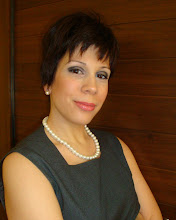As stated in the article, a style tends to be seen as reflecting a generally preferred learning strategy, in effect an aspect of an individual’s personality with interconnected attitudes & motives- Style is generally considered to be less modifiable than a strategy.
We shall refer to the learning cycle based upon the work of David Kolb (1984), who identified an experiential learning model, which contains four different phases.
The experiential learning model
Kolb named the 1st phase as concrete experience, and the 2nd as observation and reflections, during which the learner rethinks through what has happened .Then the 3rd phase follows named formulation of abstract concepts and generalizations, and the learner makes connections with his/her general knowledge We end up with the 4th phase named testing implications of concepts in new situations during which the learn finally incorporate the new knowledge attained in new situations and actively experiment with it. As explained in our SG, the theory claims that adults learn by going around an around this cycle to form a spiral, continually amending their “theory” about how things work.
As explained by Kaye Thorne and David Mackay in Everything you ever needed to know about training Kolb’s work underpins much of the current research into learning; one example of this constitutes the learning style questionnaire developed by Peter Honey and Alan Mumford. The particular questionnaire identifies four different learning styles, and each style is demonstrated through a series of behaviors and preferred way of learning. The categories as described in the previously mentioned book (p.39) are as follows:
1) Activists:
They enjoy new experiences and opportunities from which they can learn. They enjoy being involved, are happy to be in the limelight and prefer to be active rather than sitting and listening passively.
2) Reflectors:
They prefer to observe, think and assimilate information before starting. They like to review what has already happened, what they have managed to learn. They prefer to reach decisions in their own time and do not like to feel under pressure/stress.
3) Theorists:
They like to explore methodically; they think problems through in a step-by-step logical way and ask various questions. They tend to be detached and analytical in their approach. They like to be intellectually stretched and feel uncomfortable with lateral thinking, preferring models and systems
4) Pragmatists:
They like practical solutions and want to get on and try things. They dislike too much theory. They like to experiment and search out new ideas that they want to try out. They act quickly and confidently, usually are very “down to earth” and respond to problems as a challenge.
I believe that identifying our learning style could be beneficial to all of us, and could constitute a useful tool, a crucial part of our personal development. If any of you wants to go a step further, you could get access to the Honey and Mumford Learning Styles Questionnaire by clicking http://www.peterhoney.com/
